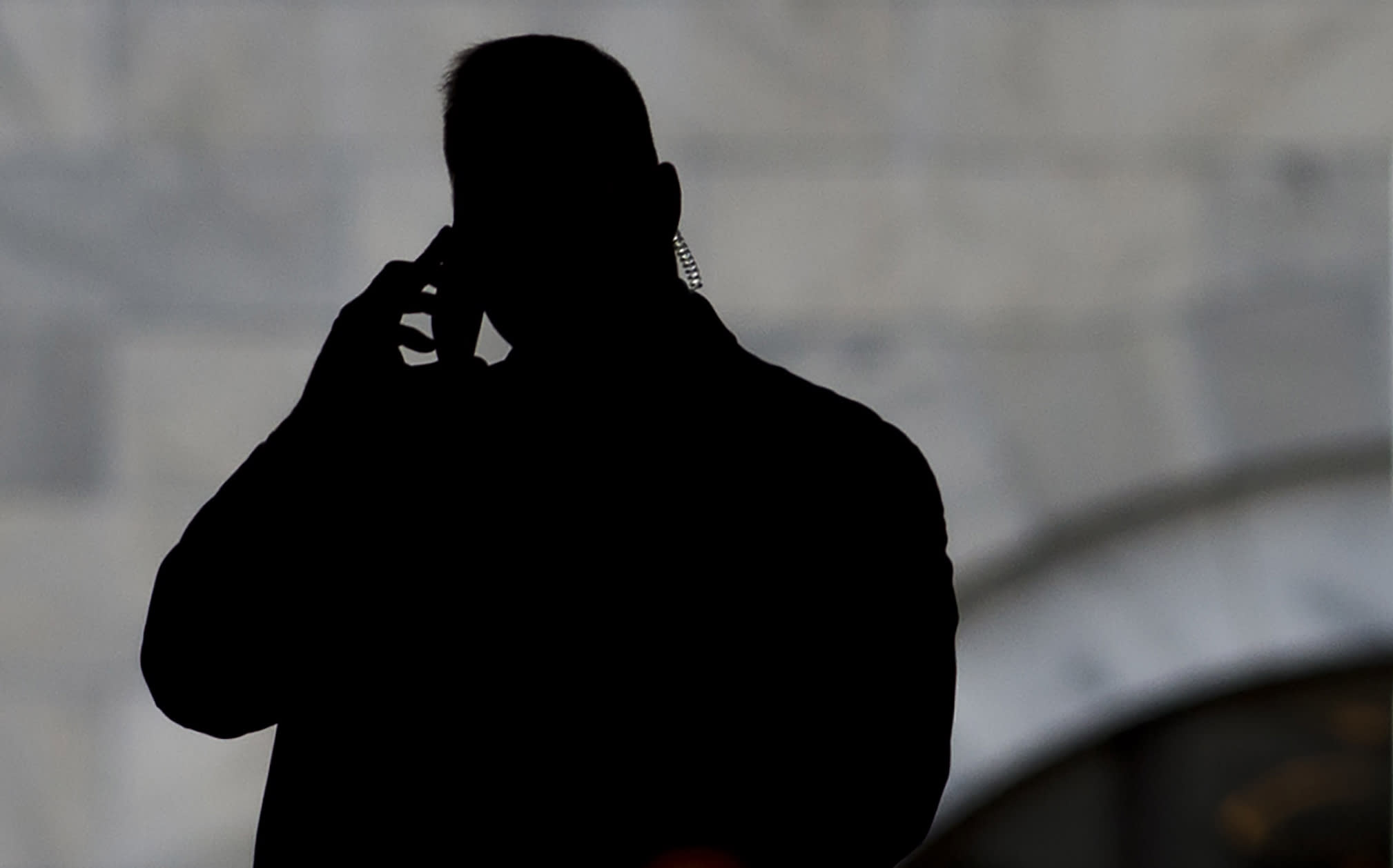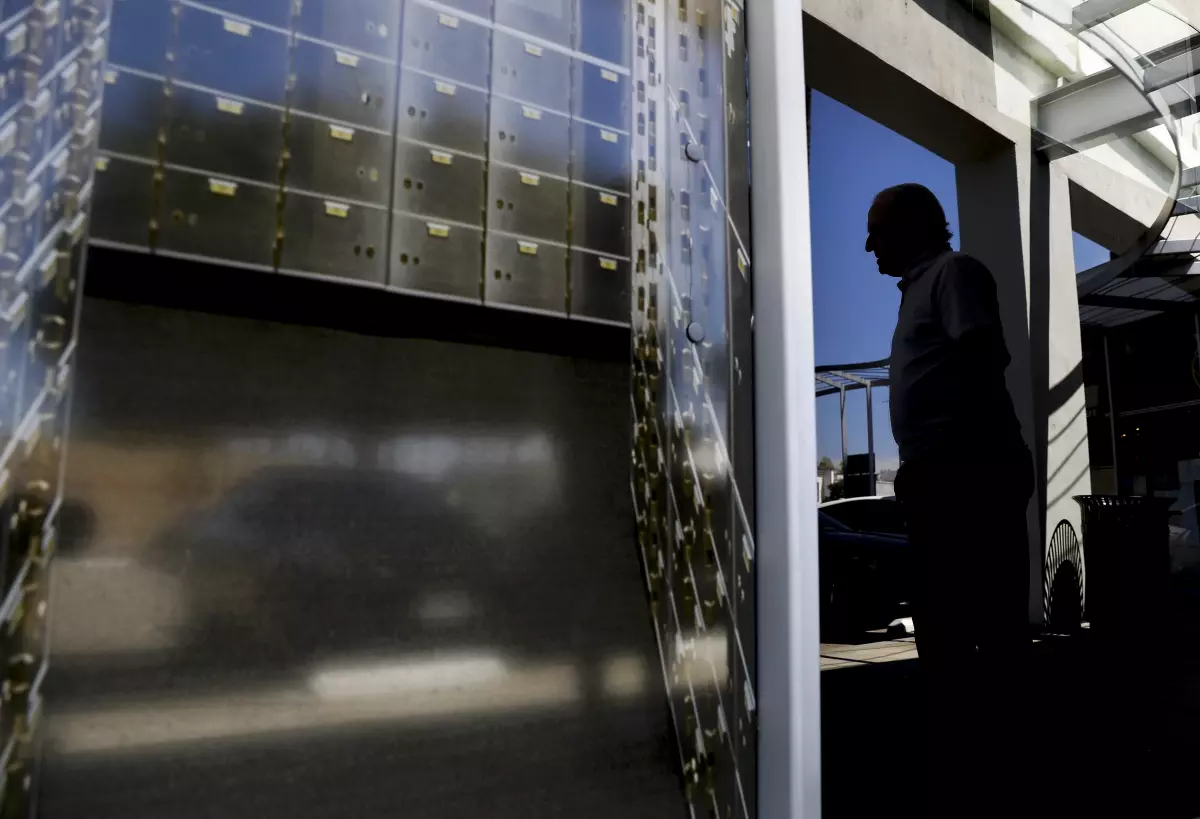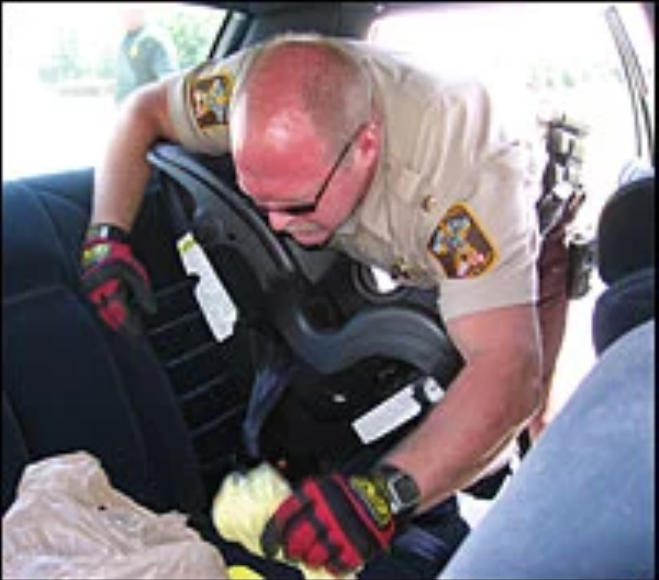Boston police bought spy tech with a pot of money hidden from the public
cross the country, some law enforcement agencies have deployed controversial surveillance technology to track cell phone location and use. Critics say it threatens constitutional rights and members of Congress have moved to restrain its use.
Seize and keep: Civil forfeiture in Massachusetts
Part one: It’s easy for police to seize money. Worcester’s district attorney makes it hard to get it back
Follow up: Lawmakers call for reforms to civil forfeiture
Part two: Boston police bought spy tech with a pot of money hidden from the public
Follow up: City councilors seek review of Boston police purchase of surveillance tech
Listen to more: Massachusetts is an outlier when it comes to civil forfeiture laws
Nonetheless, in 2019 the Boston Police Department bought the device known as a cell site simulator — and tapped a hidden pot of money that kept the purchase out of the public eye.
A WBUR investigation with ProPublica found elected officials and the public were largely kept in the dark when Boston police spent $627,000 on this equipment by dipping into money seized in connection with alleged crimes.
Also known as a “stingray,” the cell site simulator purchased by Boston police acts like a commercial cell phone tower, tricking nearby phones into connecting to it. Once the phones connect to the cell site simulator’s decoy signal, the equipment secretly obtains location and other potentially identifying information. It can pinpoint someone’s location down to a particular room of a hotel or house.
While this briefcase-sized device can help locate a suspect or a missing person, it can also scoop up information from other phones in the vicinity, including yours.
(Sophie Morse for WBUR)
(Sophie Morse for WBUR)
The Boston police bought its simulator device using money that is typically taken during drug investigations through what’s called civil asset forfeiture.
An August investigation by WBUR and ProPublica found that even if no criminal charges are brought, law enforcement almost always keep the money and have few limitations on how they spend it. Some departments benefit from both state and federal civil asset forfeiture. The police chiefs in Massachusetts have discretion over the money, and the public has virtually no way of knowing how the funds are used.
This story was supported by the Pulitzer Center.
Traducido en español por El Planeta.
The Boston City Council reviews the BPD annual budget, scrutinizing proposed spending. But the surveillance equipment wasn’t part of the budget. Because it was purchased with civil forfeiture funds, BPD was able to circumvent the city council.
According to an invoice obtained by WBUR, the only city review of the purchase — which was made with federal forfeiture funds — came from the procurement department, confirming that the funds were available.
In fact, it was only after sifting through hundreds of documents received through public records requests that WBUR discovered BPD had bought the device from North Carolina-based Tactical Support Equipment Inc., which specializes in surveillance technology.
Sergeant Detective John Boyle, spokesman for the Boston police, did not explain why the department used forfeiture dollars to buy the equipment instead of purchasing it through the regular budget process.
Requests for interviews with Boston police leaders were declined.
Boston city councilors in interviews said they weren’t aware that the police had bought a cell site simulator. Councilor Ricardo Arroyo, who represents Mattapan, Hyde Park and Roslindale, said, “I couldn’t even tell you, and I don’t think anybody on the council can necessarily tell you … how these individual purchases are made.”
ADVERTISEMENT
Advertisements on wbur.org help support the news. Please consider a donation today!
State Rep. Jay Livingstone, a Democrat who represents parts of Boston and Cambridge, says this kind of covert police spending is exactly why more oversight is needed.
“Police chiefs just have these slush funds they can do whatever they want with,” Livingstone said.
Hidden Purchases
WBUR discovered the secret purchase of cell site simulator technology when it set out to identify how civil forfeiture money was being spent.
In an invoice from Tactical Support Equipment, Boston police was billed for the purchase of a cell site simulator. (Robin Lubbock/WBUR)
In an invoice from Tactical Support Equipment, Boston police was billed for the purchase of a cell site simulator. (Robin Lubbock/WBUR)
In April, WBUR requested from Boston police all invoices for purchases made with civil asset forfeiture money between 2017 and 2019. While many of the receipts were for items like forensics equipment, vehicles and body armor, one transaction stood out: $627,000 paid to Tactical Support Equipment.
The November 2019 invoice stated only that it was a “multi-channel, multi-band base station.”
Seeking more information, WBUR searched Boston’s “checkbook explorer,” a site that allows the public to view city expenditures dating back to 2012. But the purchase doesn’t show up under the Boston Police Department. The only hint is in a Treasury Department account that lists “equipment other.” WBUR obtained model numbers from invoices to establish that this equipment was a stingray.
Boyle confirmed the technology was a cell site simulator.
This isn’t the first time the Boston Police Department has bought spy equipment that is shrouded in mystery.
It paid Harris Corp., a Florida-based defense contractor, more than $400,000 for cell site simulator equipment in 2013-2014. While the majority of that money came out of the regular police budget, much of its use and purpose has been redacted in past public records.
In unclassified documents obtained by MuckRock.com, the FBI in 2013 prohibits Boston police from communicating to the public, especially members of the media, about cell site simulator technology. (Robin Lubbock/WBUR)
In unclassified documents obtained by MuckRock.com, the FBI in 2013 prohibits Boston police from communicating to the public, especially members of the media, about cell site simulator technology. (Robin Lubbock/WBUR)
At the time, the FBI deemed cell site simulators so specialized that it prohibited Boston police and other law enforcement from talking about the devices publicly, specifically with the media. Boston received stingray training and equipment as far back as 2009, according to a Harris invoice acquired by Muckrock.com.
When Harris Corp. discontinued the stingray equipment for local law enforcement use in 2019, Boston police turned to Tactical Support Equipment.
A Push To Regulate The Spy Technology
The proliferation of this technology among local law enforcement departments across the country concerns civil rights advocates.
Kade Crockford, who heads the Technology for Liberty program at the ACLU of Massachusetts, called the cell site simulator “extremely invasive,” and was not surprised Boston police used forfeiture dollars to pay for it, which avoided scrutiny.
“For a long time, law enforcement has been extremely secretive about their acquisition and use of this particular kind of technology,” Crockford said.
“For a long time, law enforcement has been extremely secretive about their acquisition and use of this particular kind of technology.”
KADE CROCKFORD
Knowing precisely how many are being used by law enforcement across the country is impossible. By 2014, federal law enforcement purchased 434 devices totaling more than $95 million, according to a Congressional oversight committee. The ACLU reported a few years later that 75 local departments and state police also had the equipment in their hands.
Facing nationwide controversy about the stingray, legislators at the federal, state and local level want more oversight of how cell site simulators are purchased and some demand police get a warrant from a judge.
In June, U.S. Sen. Ron Wyden, an Oregon Democrat, co-sponsored a bipartisan bill called the Cell-Site Simulator Warrant Act of 2021, which would require a warrant to use the technology except in cases of emergencies. It would also require federal law enforcement agencies to provide annual reports about how the devices were used.
“Cell site simulators have existed in a kind of legal no-man’s land for far too long,” Wyden said in a statement when the legislation was introduced. The bill, he said, replaces “secrecy and uncertainty … with clear, transparent rules for when the government can use these invasive surveillance devices.”
As of 2016, California was the only known state that requires city councils to approve written police procedures for use of stingrays before purchasing.
But even with that regulation in place, at least one police department tried to avoid the new rules.
A privacy advocacy group sued the city of Vallejo after the city approved the purchase of a $766,000 cell site simulator in March 2020 without adopting a use policy. After a judge determined the city violated state law, the city required the Vallejo police to obtain a search warrant before using the technology, or immediately after in the case of an “exigent” or emergency situation involving the threat of physical harm or death.
From 2009-2016, Boston police never obtained a warrant, claiming exigent circumstances when using a cell site simulator, a practice the ACLU heavily criticized.
An undated photo shows the StingRay II, manufactured by Harris Corp., of Melbourne, Fla., a cell site simulator used for surveillance purposes. (U.S. Patent and Trademark Office via AP)
An undated photo shows the StingRay II, manufactured by Harris Corp., of Melbourne, Fla., a cell site simulator used for surveillance purposes. (U.S. Patent and Trademark Office via AP)
Legislators in Massachusetts have tried pushing for more oversight of stingrays. In 2019, while the Boston Police Department was purchasing the new cell site…
You might also like:
Asset Forfeiture Defense: Your Legal Options | Police Stole My Life Savings! Civil Asset Forfeiture | JUSTICE MANUAL 9-120.000 – Attorney Fee Forfeiture Guidelines | Highway Robbers Return Money Taken from Ex-Marine The Catch? They Were Cops | Asset Forfeiture; a Commentary on the Legal Marijuana Industry’s Achilles Heel | Civil Asset Forfeiture: Unconstitutional As Applied | Wisconsin Enacts Sweeping Civil Asset Forfeiture Reform | Do Innocent Citizens Risk Police Seizure of Their Property? | Hobby Lobby’s $1.6 million Gilgamesh tablet has been forfeited to the U.S. | Good and bad news on civil asset forfeiture | Alabama Shows How Law Enforcement Can Get Behind Asset Forfeiture Reform | The Forfeiture Machine Turns Cops into Robbers | JUSTICE MANUAL 9-120.000 – Attorney Fee Forfeiture Guidelines | The Seemingly Interminable Saga of the Timbs Asset Forfeiture Case Continues | Police Officer Arrested On Civil Asset Forfeiture Confusion | Michigan Bans The Cops From Seizing Your Property Without Conviction | Asset Forfeiture Legal Resources | Excessive Fines Clause: Protecting Your Rights | Arizona Legislature Passes Bill Requiring Convictions for Asset Forfeiture | An Indiana man was caught with $260 of heroin. The state took his $42,000 Land Rover. | Another State Ends Civil Asset Forfeiture! | How Civil Forfeiture Makes It Harder for Cops to Do Their Jobs | It Was a Good Week to Fight Civil Asset Forfeiture | Dirty, Sexy Civil Asset Forfeiture




![igor-groshev-adobe-stock-140622[1]](https://www.rucci.law/wp-content/uploads/2023/12/igor-groshev-adobe-stock-1406221.jpeg)



![Figure-17[1]](https://www.rucci.law/wp-content/uploads/2023/12/Figure-171.png)


